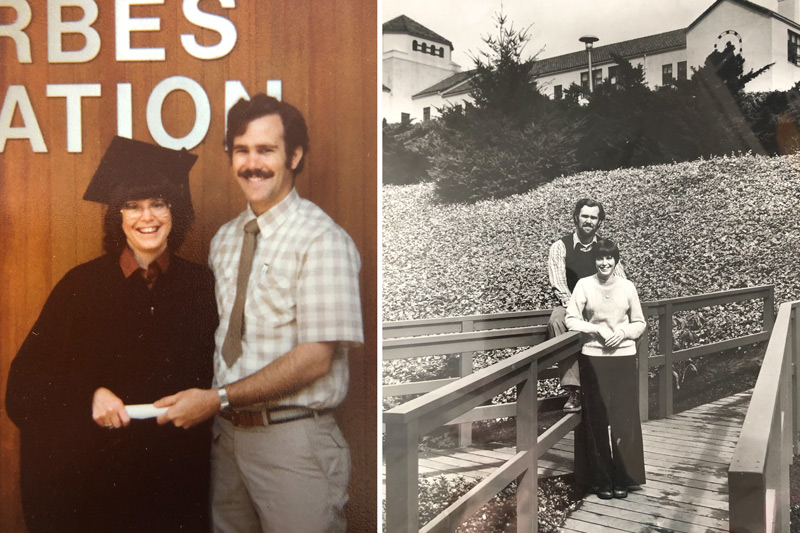On the opposite side of the country, Leah B. Thibault lives in southern Maine with her husband and eight-year-old daughter. As the marketing manager for a community development nonprofit, Thibault’s professional world is heavily invested in financial equity, rural economic development, and food systems, particularly in underserved communities. In Maine, the economic and social legacies are comparable to Humboldt County, inspiring her professional interest in HSU’s groundbreaking new Food Sovereignty Lab & Cultural Workshop Space. But her interest isn’t just professional, it’s highly personal too.
When Thibault lost her mother in 2019, she received an unexpected inheritance from her maternal grandparents and started thinking about how to use the gift in a way that honored her family while tying in her personal interests in social justice and food. That’s when Thibault read about the new Food Sovereignty Lab in the works in the Department of Native American Studies at Humboldt State University.
“It was a perfect fit,” says Thibault, who explains that she “wouldn't exist” without HSU. Both her grandparents (James Ingram and Patricia Mattax) and parents (Mark Batt and Dana Ingram) met as students at HSU in the 50s and 70s, respectively. Though she grew up in Napa, California, Thibault has fond memories of visiting family in Eureka, where she remembers hunting for dragons and visiting the otters in Sequoia Park, walking along the beach bundled up in sweaters, and holiday shopping in Old Town.
Back in Maine, Thibault was scrolling through Civil Eats online when she came across an article about food sovereignty projects that highlighted how the Wiyot and Yurok tribes are partnering with community entities to take back ancestral lands, like Tuluwat Island, and reclaim traditional foodways. The story mentioned HSU’s first-of-its-kind Food Sovereignty Lab, which is currently fundraising to create a dedicated space on campus for hands-on education and research on Indigenous practices like basket-weaving, food preparation, regalia, and traditional ecological knowledge. For Thibault, giving to the Food Sovereignty Lab was the perfect way to honor the special role that Humboldt State, and the surrounding environment, played in her family history.
“It’s important to teach my daughter that food doesn’t just appear,” says Thibault, who keeps several raised vegetable beds and a raspberry bramble at her home in Maine. “I want her to understand that it takes work and skill to create.”
With Thibault’s gift, the Batt Ingram Memorial Fund (named in honor of Thibault’s father and mother, respectively) will generously provide $50,000 in endowed funds to support five student interns and two research assistants in the Food Lab, with a focus on ecological sustainability and Indigenous food sovereignty. Another $10,000 will go towards immediate seed funds to launch the lab and internship program.
“What HSU is doing right now is very unique,” says Thibault. “There’s so much we can learn from tribal communities who have managed their land sustainably for generations. I’m proud to have the Batt Ingram family support Indigenous knowledge-sharing and education for years to come.”

